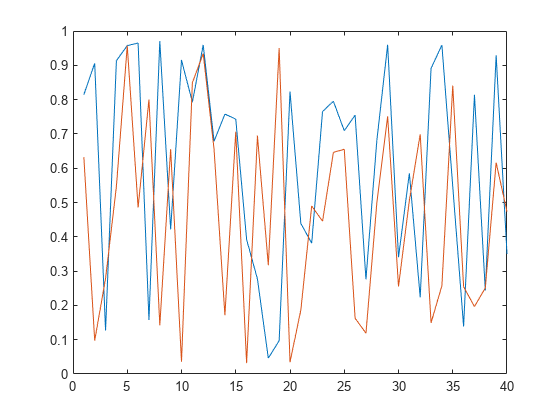dsp.MatFileWriter
Write MAT file
Description
The dsp.MatFileWriter
System object™ writes data to a V7.3 MAT file.
To write data to a V7.3 MAT file:
Create the
dsp.MatFileWriterobject and set its properties.Call the object with arguments, as if it were a function.
To learn more about how System objects work, see What Are System Objects?
Creation
Syntax
Description
mfw = dsp.MatFileWritermfw, that writes data to a V7.3 MAT file.
mfw = dsp.MatFileWriter(fname,vname)Filename property set to
fname and the VariableName property set to
vname.
mfw = dsp.MatFileWriter(Name,Value)
Properties
Usage
Syntax
Description
Input Arguments
Object Functions
To use an object function, specify the
System object as the first input argument. For
example, to release system resources of a System object named obj, use
this syntax:
release(obj)
Examples
Version History
Introduced in R2012b
